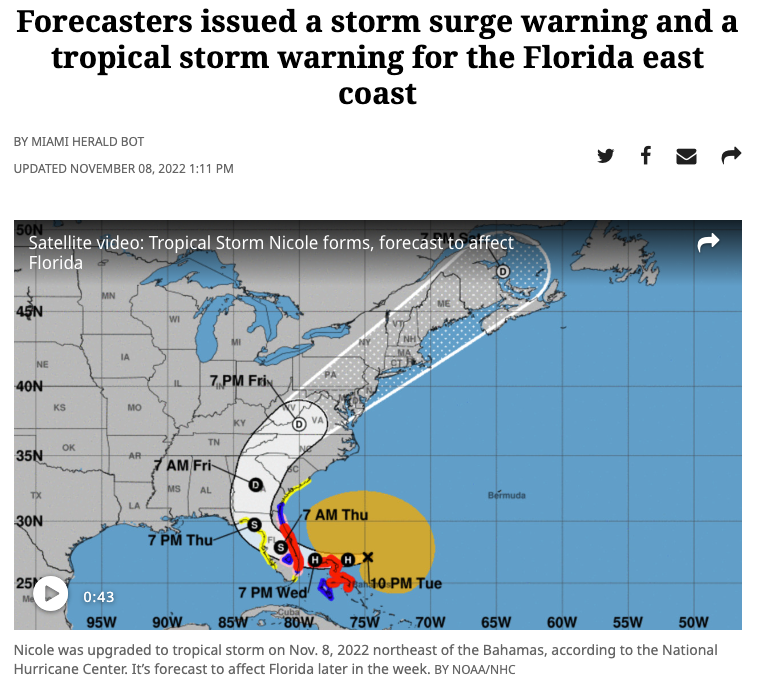AI, service journalism and the chance for local media to reclaim its position
February 2026. By Cecilia Campbell
February 2026. By Cecilia Campbell
Malmö, January 2023
“What do you think of ChatGPT in the context of journalism? Saviour or enemy? Will AI make or break the news industry?” This is certainly the question du jour in our industry.

What do readers have a right to expect from their local news publisher? This question of course has a lot of answers – from quality journalism to a useful UX. What I’d like to focus on here is something we at United Robots often discuss with our publisher clients; the importance of providing unique local content. Or – from the reader’s point of view – having access to a local news site that is the hub of local journalism and information that you can’t easily find anywhere else. The content that defines the community you live in.

We know from local publishing partners how important it is to publish content that fulfills a need for local readers. With automated texts about extreme weather, local newsrooms can service readers with fast and reliable updates, and at the same time allow reporters to focus on covering live developments on the ground.
United Robots provides two automated weather content products: Weather warnings and Hurricane alerts. Weather warnings are based on data from the National Weather Service and our Hurricane product is built on data from the National Hurricane Center (more on products further down).
“We need to prepare for the death of the article as we know it,” said Nikita Roy at the Nordic AI in Media Summit* in Copenhagen recently. For me this was probably the most strikingly simple, yet clarifying statement made over the course of the two days – speaking, as it does, to a number of implications of the impact of AI on journalism. It’s about tech, but it’s also very much about people – those who produce it and those who consume it.
May 2024. A year and a half has passed since generative AI went mainstream. For United Robots, where we’d already been working in the AI / newsroom space for years when ChatGPT came along, we – I admit – got kind of side-tracked focusing on where our “old AI” tech fit with this new stuff. But then the penny dropped.
Because automated editorial content is created from verified, structured data, it can safely be automatically published – from reliable data comes reliable text. This reliability lies behind a number of values gained in the newsrooms of Advance Local who publish automated weather warnings. During a seminar at INMA Media Subscription Summit in New York, Advance Local VP Content Strategy Lamar Graham and Matt Dowling, Director of Breaking and Local News at NJ Advance Media explained how the newsrooms work with, and benefit from, the automated content.
Advance Local’s venture into the use of automated content began in 2022, and had nothing to do with extreme weather. The media group has ten local markets, one of which is Massachusetts. There, the newspaper the Republican in Springfield had for a long time been publishing a listing of all the homes sold in Hampton County in print, collated manually from a spreadsheet. When they started publishing the same content online, they realised it was converting readers into subscribers, “and that’s when a light bulb went off,” said Lamar Graham. If they could replicate this type of content across many more markets, it would potentially amplify the effect. But having reporters manually put together lists to achieve a few hundred pageviews was not viable. “But what if we could somehow automate this and hoover up a bunch of this data around the country and scale it – that might be worth something. This was our hypothesis,” said Graham. Researching options, Advance Local came across United Robots and discovered we had already done the data hoovering and had automated real estate content production for the US in place (albeit from Malmö, Sweden). Advance Local started testing the automated real estate content at Masslive.com in 2022, and rolled it out to all other markets bar one in 2023.

Malmö, November 30, 2023 by Cecilia Campbell

We’re living through a summer when increasingly extreme weather events are impacting communities across the globe. Correct and up-to-date information is critical for people affected. For local publishers, this is an opportunity to make a real difference to your readers. Service them with reliable extreme weather updates, and they will likely start to come back to your site to stay on top of the situation and plan for what will come next.
April 2023. It’s been a couple of months since we published our first blog on generative AI. And while the discussion in the industry continues unabated, the initial dust is settling somewhat, to reveal a few key aspects which I think should guide the news industry in how we relate to and work with this new tech.